Data and Statistics
The PCEs data tell us that encouraging safe, stable, and nurturing relationships and environments for children has lifelong positive effects on the health of Tennesseans. For more information on PCEs in Tennessee, this PCEs Factsheet shares findings from the Tennessee Department of Health PCEs data, collected from the 2021 Behavioral Risk Factor Surveillance Survey.
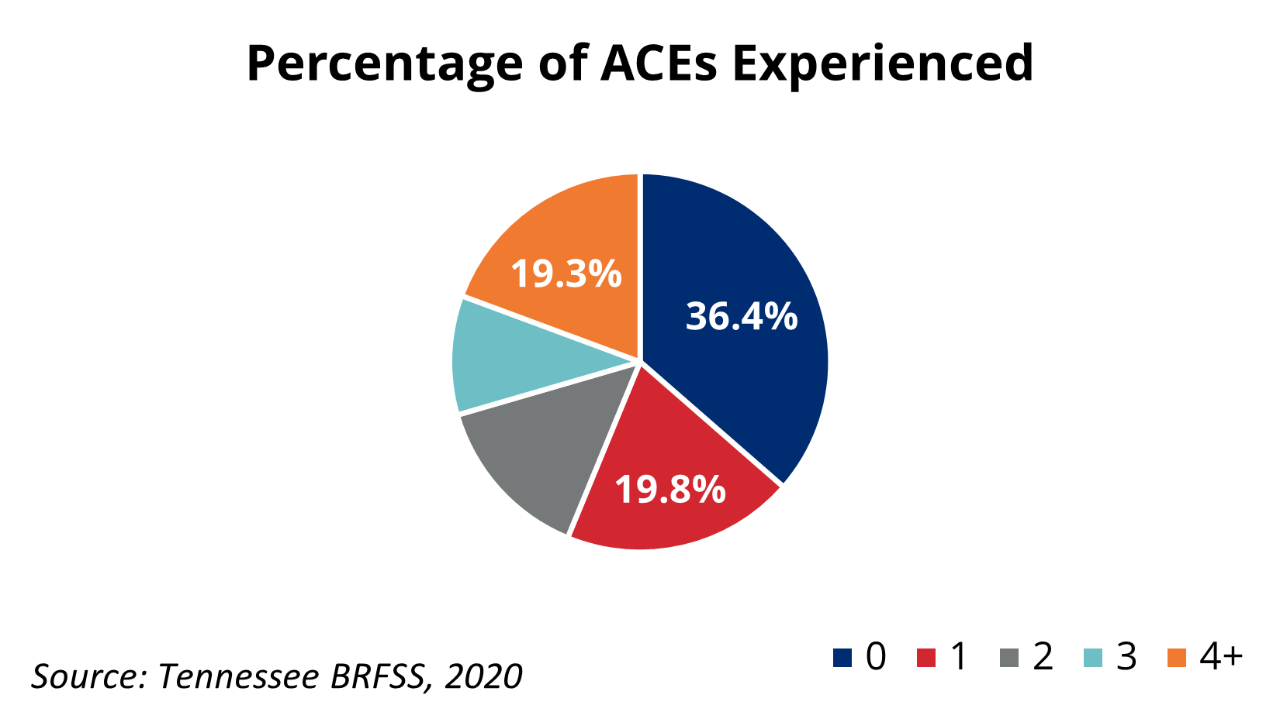
ACEs are common among Tennesseans; in 2020, 63.6% of Tennesseans report experiencing at least one ACE and
19.5% of Tennesseans report experiencing 4 or more ACEs.
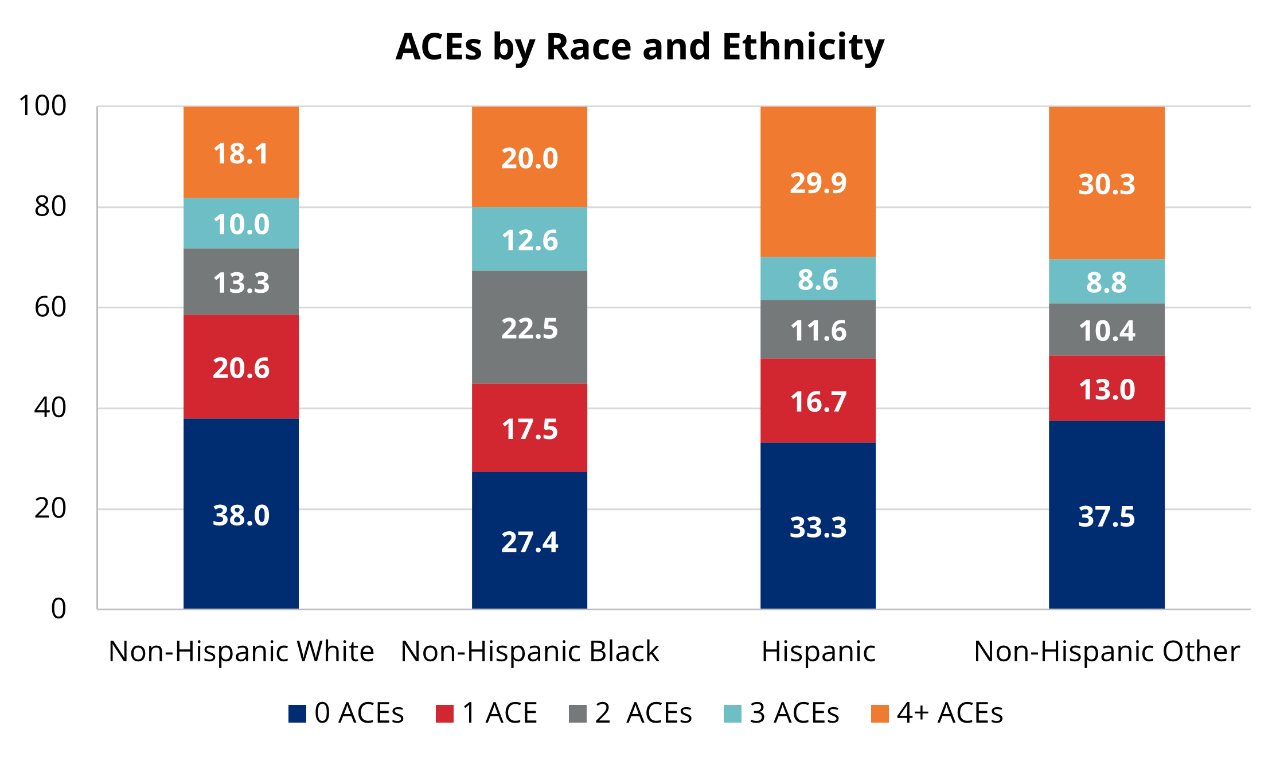
Reporting an ACE score of 4+ is more common for racial and ethnic minority groups compared to Non-Hispanic
White respondents.
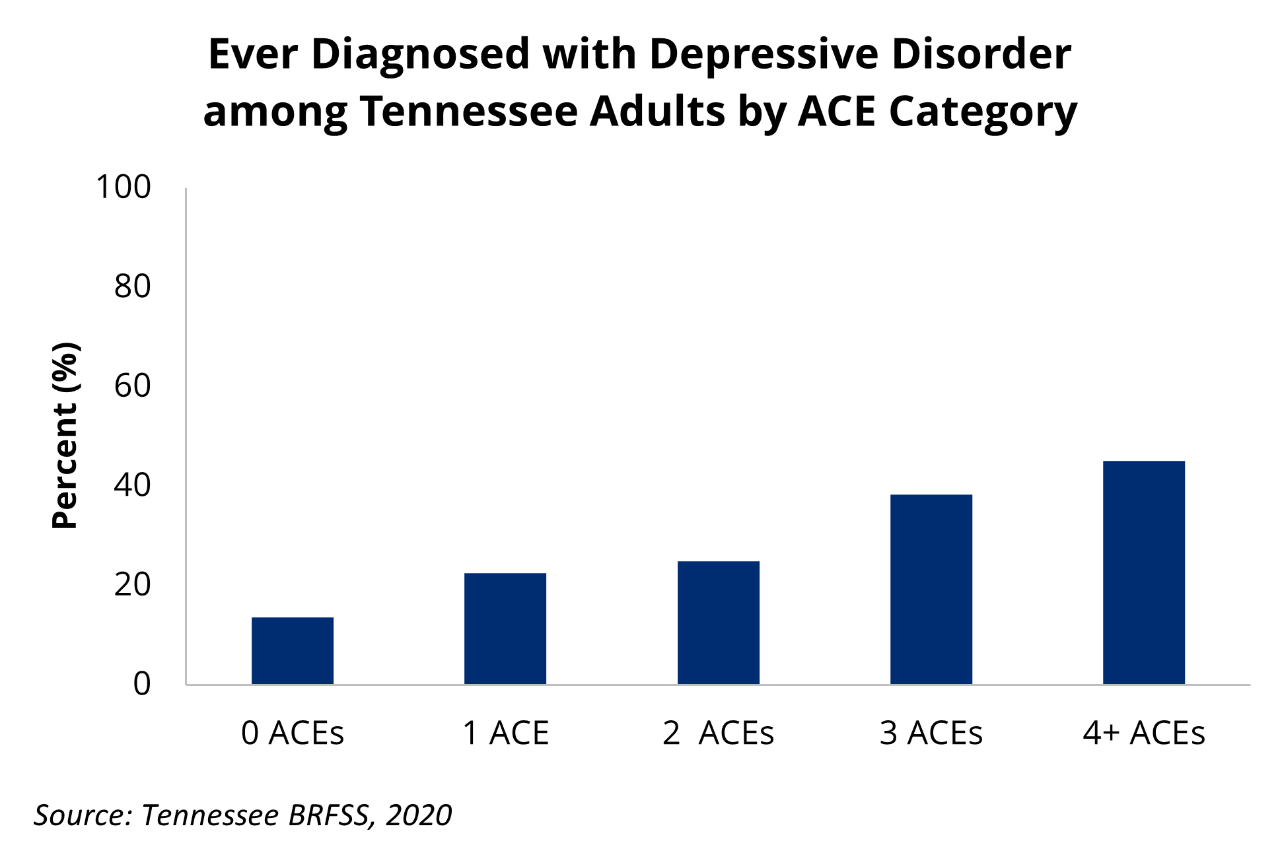
Tennesseans who report higher ACEs during childhood are more likely to have ever been diagnosed with a depressive disorder. As ACEs increase, so does depressive disorder diagnoses.
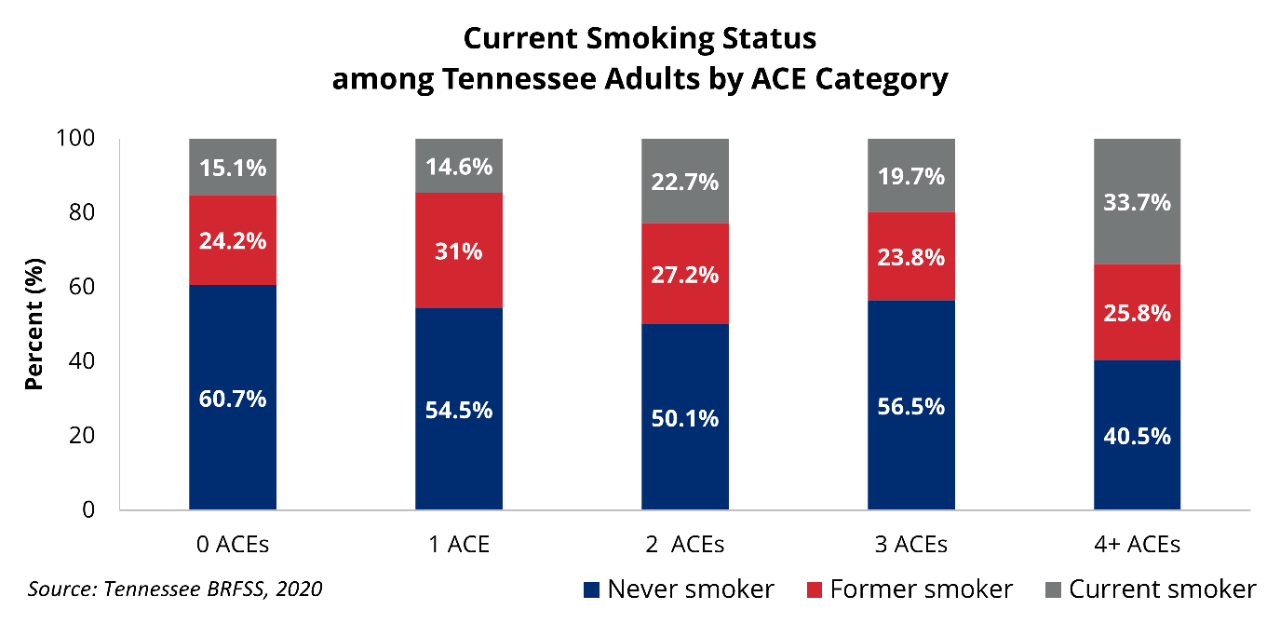
Tennesseans who report more ACEs during childhood are more likely to be a current smoker or a former smoker, compared to Tennesseans with no ACEs.
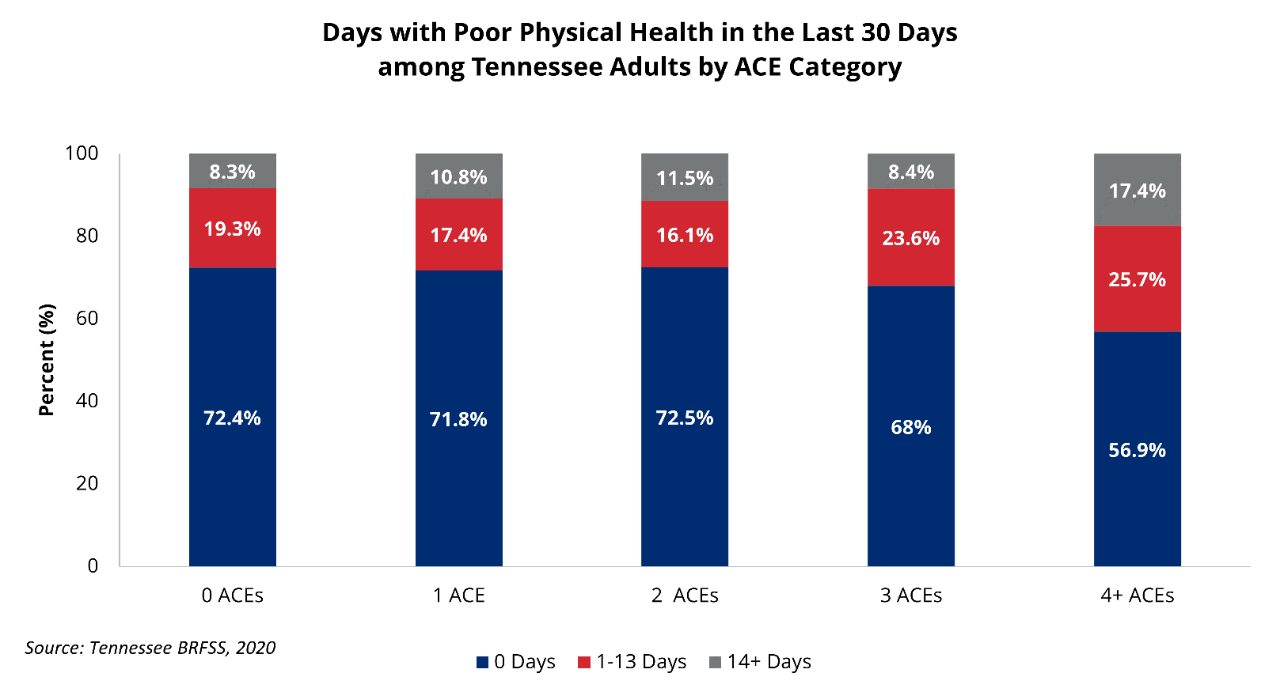
Tennesseans with high ACEs are more likely to report having 14+ days of poor physical health in the last month compared to Tennesseans with 0 ACEs.
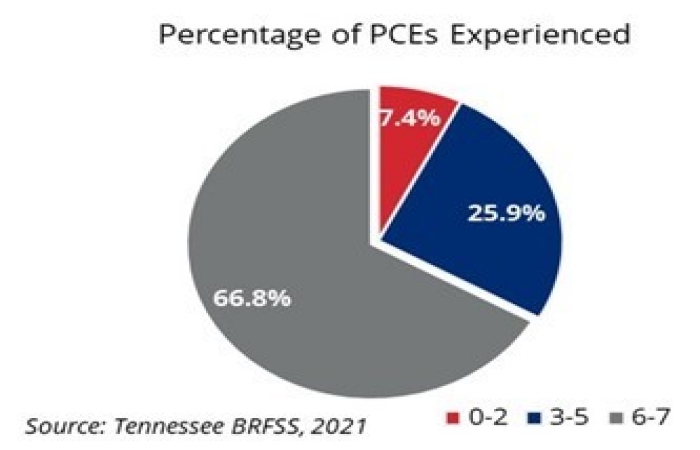
Most adult Tennesseans report experiencing several PCEs during childhood. Over 2/3 of Tennesseans report 6-7 PCEs. In fact, nearly half of adults reported experiencing all 7. Only 7.4% reported 2 or fewer PCEs.
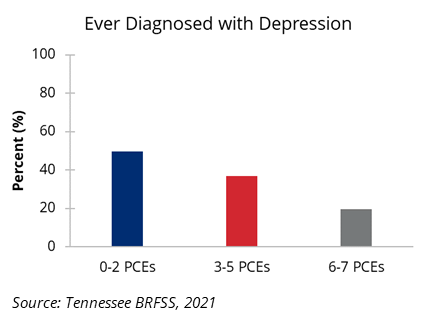
Recent surveys in Tennessee show that PCEs can lead to better mental and emotional well-being. Tennesseans who report having higher PCEs in childhood also report better mental health in adulthood. Increased Positive Childhood Experiences have been linked to a lower prevalence of depression.
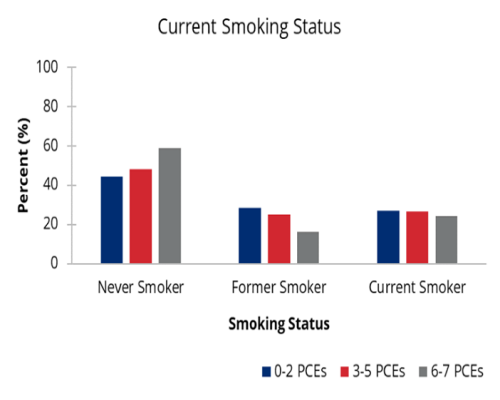
Improved emotional wellbeing lessens the probability of unhealthy behaviors. In Tennessee adults with more PCEs reported having “never smoked” cigarettes and fewer reported being a “former smoker”.
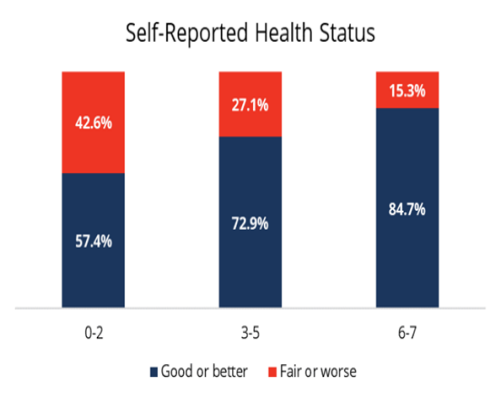
PCEs are associated with improved overall health across the lifespan. As the number of PCEs increase, so did the probability of adults in Tennessee reporting good or better health.